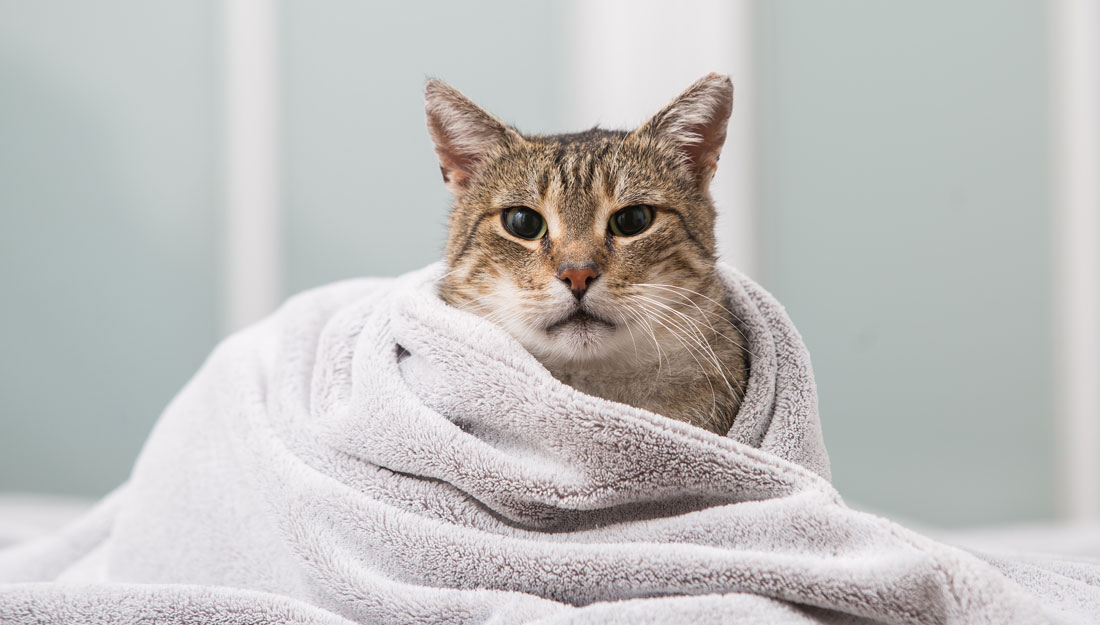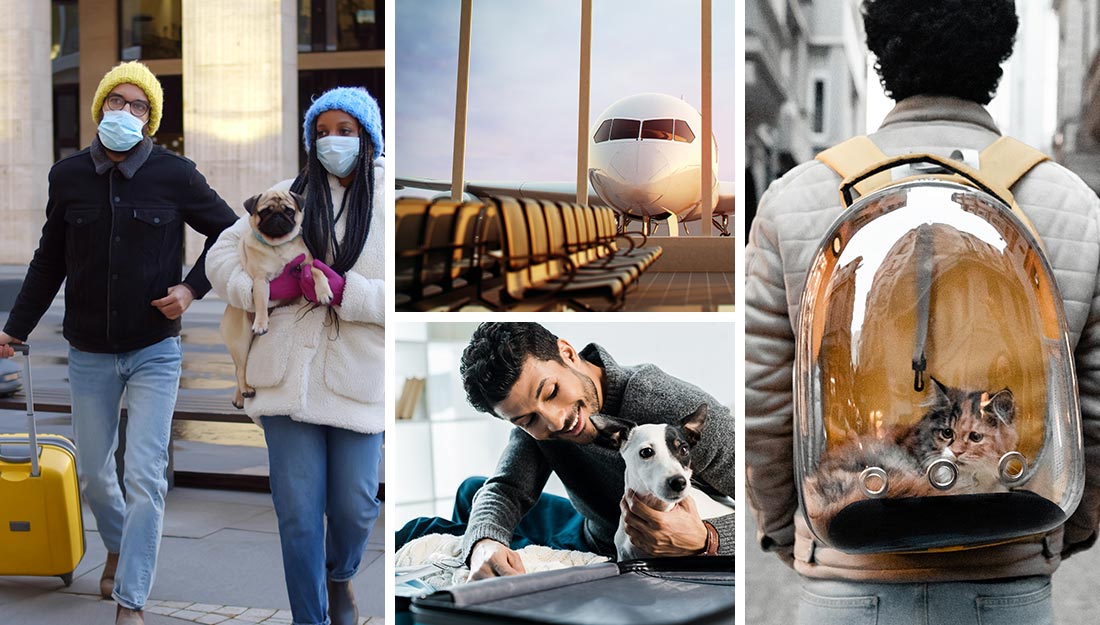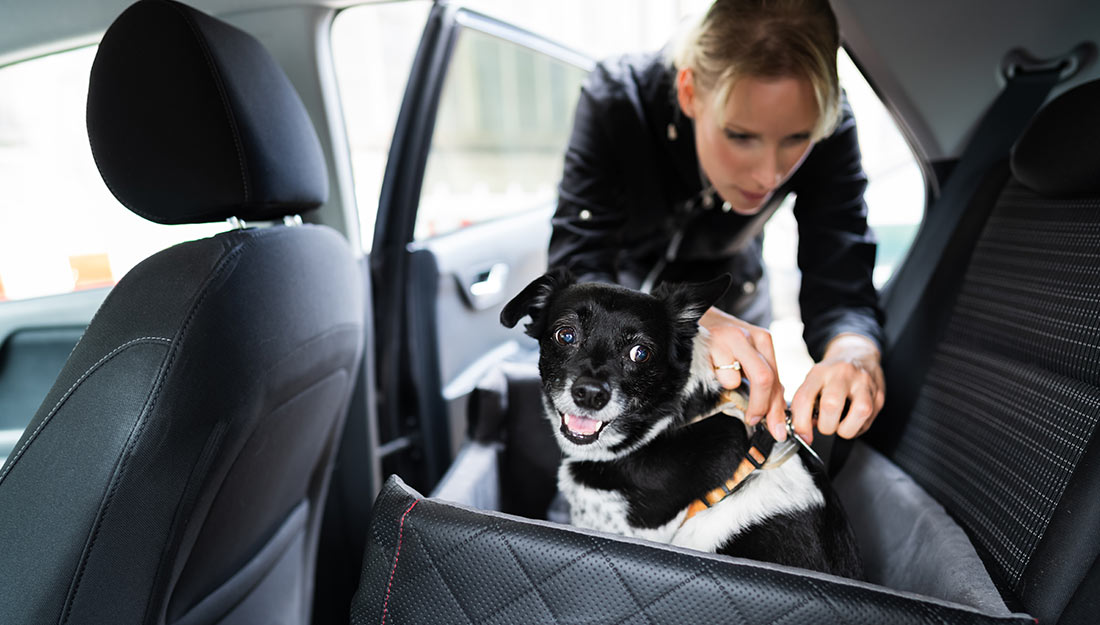Having a pet along makes travel more fun. But just like people, pets sometimes have a bad day or make mistakes. If you run into these challenges, here’s what to do.
My dog or cat had an accident in the room
It’s okay, accidents happen! Don’t scold or punish your pet. Animals don’t understand punishment after the fact, so it can do more harm than good. Do clean up the mess and let the hotel know what happened. They will have a cleaning protocol to make sure odors and stains don’t linger. Then, check out this article for tips on avoiding additional accidents.
My dog won’t stop barking
Training your dog not to bark in inappropriate situations takes time. You may need the help of a professional dog trainer. But there are steps you can take to troubleshoot the issue and start the training process.
- Figure out why your dog is barking and see if you can address it. For example, if they’re reacting to seeing other pets or people outside, close the blinds. If they’re responding to noises in the hotel, turn the TV on at a low volume to provide white noise.
- Don’t reward barking or allow it to be “successful.” For example, if your dog is trying to get attention and you talk to or pet them in response, you are reinforcing their barking. Yelling at them to be quiet also may be seen as reinforcement.
- Start teaching your dog the “quiet” cue. Say the word “quiet” and show the dog that you have a treat. When the dog is quiet for 5 seconds, reward them with the treat. Continue to give a few treats in a row as long as the dog doesn’t start barking again. Work up to longer periods of quiet.
- If your dog is barking to a degree that would disturb your neighbors, try going out for a walk to burn off excess energy. A tired dog is less likely to be over-stimulated or to overreact to sounds outside your room.
My cat is meowing loudly at night
Nighttime vocalizing from cats is common, but there are things you can do to help minimize it. If a cat continues to make a lot of noise at night, you should visit your vet to rule out health issues that might be related.
- Make sure to give your cat food and water before bed. Making your cat’s mealtime as late as possible may help reduce meowing for a late-night feeding.
- Don’t reward vocalizing or allow it to be “successful.” Your cat might just be asking for attention and if you give it, you will be reinforcing their meowing.
- Play with your cat often. Keeping them awake more during the day – especially in the afternoon and evening – may help them sleep when you do. Have some active play right before bed, too, for example playing chase with a toy wand, to tire your cat out.
- Clean out the litter box. Cats want a fresh, clean place to go to the bathroom. Be sure you scoop the box before going to bed.
- Leave a light on. It’s true that cats need less light than humans. But when you’re in a new space like a hotel room, a cat can still be upset by not knowing where things are, especially if your cat is older. Leave a light on near their food bowl.
I’m running out of food or forgot to bring it
If possible, find a nearby store where you can get the food your pet is used to. Changing food can sometimes lead to an upset stomach for your pet.
If you can’t get your usual food, you’ll want to change to a new type gradually. The rule of thumb is this:
- Days 1 & 2: 25% new food, 75% old food
- Days 3 & 4: 50% new food, 50% old food
- Days 5 & 6: 75% new food, 25% old food
- Day 7: 100% new food
If you don’t have enough of your old food to make a gradual transition, still try to make the change as slowly as you can. Also, stick with your usual feeding times and routine, so the transition is as gentle as possible.
You may be most successful with something that has a similar balance of protein and other ingredients to your regular food and comes in similar flavors. Check labels and call the “contact us” number on the labels if you have questions.
If you have questions about the best food for your dog or cat, or how they are reacting to new food, be sure to check with your vet.
My pet keeps trying to escape from the room when I open the door
First and foremost, make sure your pet is wearing a collar with your contact info, and is microchipped, just in case they do get out. Also, be sure to use your door hangtag that indicates you have pets inside.
Then, try these tips.
- If you’re taking your pet with you when you exit the room
- Put their leash on before opening the door, so you stay in control.
- If you’re leaving your pet behind when you exit the room
- Encourage your pet to move away from the door by tossing a favorite toy or treat into another part of the room.
- When you return, have a treat with you that you can also toss into the room, helping them associate being away from the door with getting a reward.
- More tips:
- Consider buying a pet gate that you can set up to block access to the door area.
- Practice “sit” and “stay” behavior with your dog as you are entering or exiting the room and reward them with a treat as the door is closing.
- Explore more thorough training for door darting behavior. This takes time and you may want to talk with a professional pet trainer.





 Your Privacy Choices
Your Privacy Choices